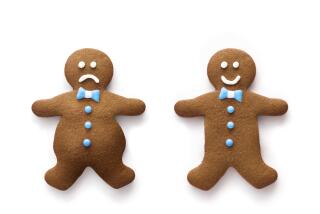One-third of Americans are obese, and doctors should learn how to examine them
- Share via
Apparently, there is one bastion of American life that has not yet been touched by the obesity epidemic – medical school.
So say a pair of physicians from the University of Pittsburgh. In a commentary published online this week in the Journal of the American Medical Assn., they argue that medical students should get a whole lot more formal training in how to treat obese patients.
More than 1 in 3 American adults is obese, and yet medical textbooks “almost exclusively display normal-sized mdels with obvious bony landmarks,” write Dr. Ann Willman Silk and Dr. Kathleen M. McTigue. Physical exams are usually practiced on healthy-weight patients. So when confronted with a patient whose internal organs are buried beneath a thick layer of fat, doctors are often ill-prepared to assess them.
For instance, the authors say that although excess weight is a known risk factor for breast cancer, obese women are less likely than other women to get regular mammograms or Pap tests. “Some physicians may be reluctant to perform breast and gynecological examinations on obese women because they believe these examinations are ‘difficult’ and ‘inadequate,’” they write.
But that need not be the case. There are techniques for improving the accuracy of breast exams on women with large breasts, and doctors should learn them, they write.The authors even provide a handy cheat sheet with some of the “practical techniques and maneuvers [that] may be useful in examination of obese patients.” For instance, if a patient’s chest wall is so thick that it’s difficult to hear his heartbeat, ask him to lean forward (so that the heart is closer to the stethoscope) and feel for his pulse at the carotid artery at the same time.
With American men weighing in at 195 pounds and women tipping the scales at 165 pounds, on average, the physicians, conclude, “Medical education programs should place more emphasis on how to adapt the physical examination for obese patients.”
RELATED: Obesity takes a toll on sexual health







